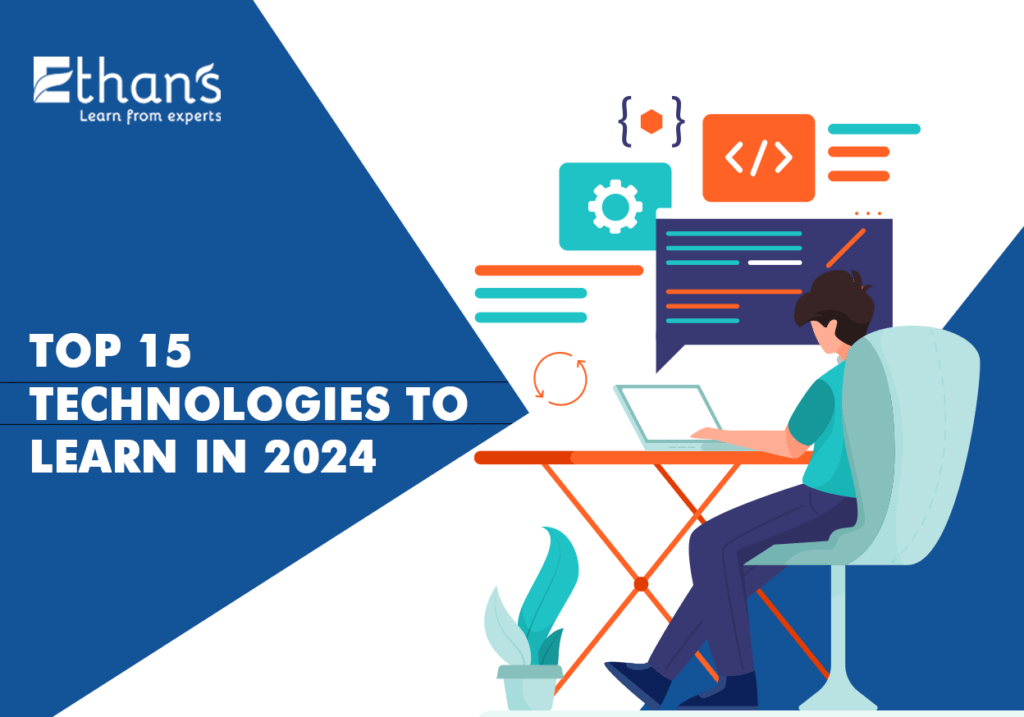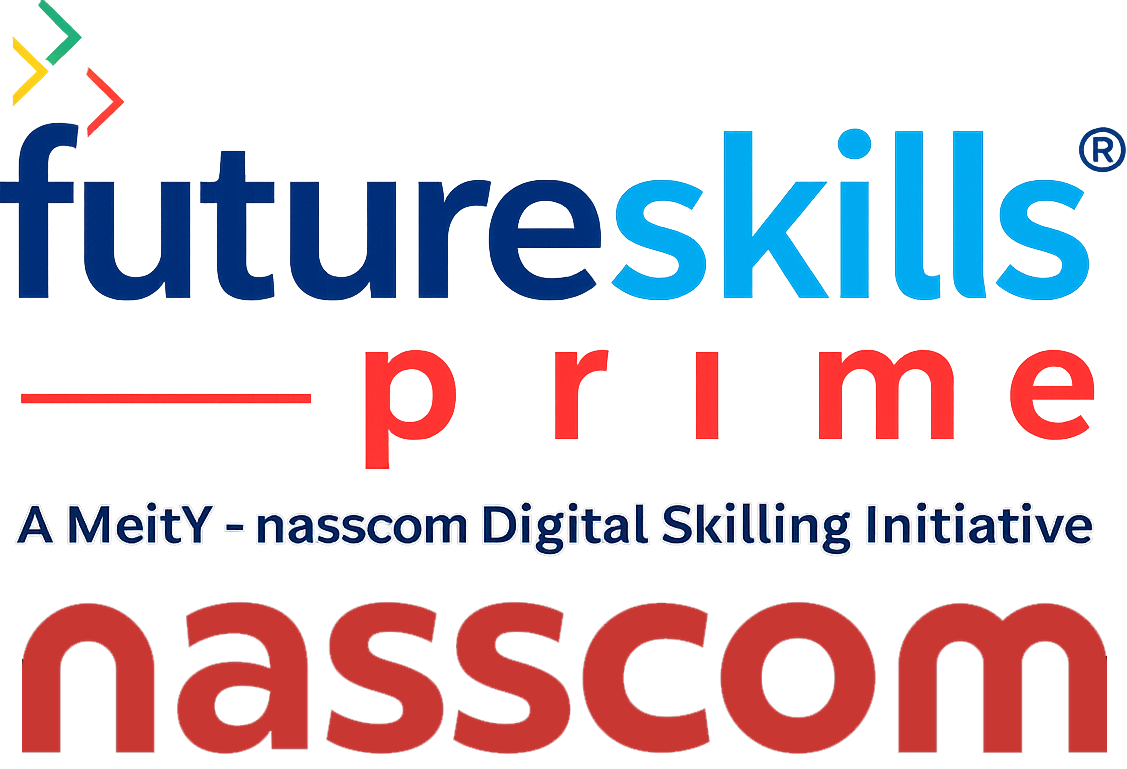In the fast-paced realm of technology, staying ahead of the curve is not just advantageous; it’s imperative for professionals seeking to thrive in today’s digital landscape. As we step into the year 2024, the tech horizon is ablaze with innovation, presenting a plethora of cutting-edge technologies poised to reshape industries, revolutionize workflows, and unlock new realms of possibility.
Here, we delve into the top 15 technologies that are set to dominate the tech landscape in 2024, offering insights into their significance, applications, and potential impact on the future of work and society.
1. Artificial Intelligence (AI) and Machine Learning (ML)
AI and ML continue to lead the charge as transformative technologies, powering advancements in automation, predictive analytics, natural language processing, and computer vision. From virtual assistants and recommendation systems to autonomous vehicles and predictive maintenance, AI and Machine learning are ubiquitous, driving innovation across industries.
2. Blockchain Technology
Blockchain technology, renowned as the backbone of cryptocurrencies like Bitcoin and Ethereum, is poised to disrupt traditional industries by offering decentralized, immutable systems for secure data exchange, digital identity management, and transparent supply chain tracking. As organizations seek enhanced security and trust, proficiency in blockchain development and implementation is increasingly prized.
3. Internet of Things (IoT)
The Internet of Things (IoT) ecosystem continues to expand, interconnecting an ever-expanding array of devices and sensors, enabling real-time data collection, analysis, and control. From smart homes and connected factories to precision agriculture and smart cities, IoT technologies are driving efficiencies and reshaping the way we interact with the world around us.
4. Cybersecurity
In an era of escalating cyber threats and sophisticated attacks, cybersecurity remains paramount. Professionals adept in threat detection, incident response, encryption, and ethical hacking play a critical role in safeguarding digital assets, protecting sensitive data, and fortifying defenses against evolving threats.
5. Quantum Computing
Quantum computing, with its potential to solve complex problems exponentially faster than classical computers, is on the brink of revolutionizing fields such as cryptography, optimization, drug discovery, and materials science. Despite being in its nascent stages, quantum computing holds immense promise for tackling some of humanity’s most pressing challenges.
6. Augmented Reality (AR) and Virtual Reality (VR)
AR and VR technologies are blurring the boundaries between the physical and digital worlds, offering immersive experiences for gaming, entertainment, training, education, and remote collaboration. With applications ranging from virtual prototyping and architectural visualization to medical simulations and immersive storytelling, AR and VR are transforming industries and shaping new realities.
7. Edge Computing
Edge computing brings computation and data storage closer to the data source, enabling real-time processing, low-latency communications, and bandwidth optimization for IoT devices and edge devices. By decentralizing data processing and analysis, edge computing enhances scalability, reliability, and responsiveness, making it indispensable for applications requiring rapid decision-making and localized intelligence.
8. 5G Technology
The advent of 5G technology heralds a new era of connectivity, offering unprecedented speed, bandwidth, and low latency for mobile devices, IoT devices, and autonomous vehicles. With its transformative potential, 5G technology is set to fuel innovation across various sectors, from healthcare and manufacturing to entertainment and transportation.
9. Robotic Process Automation (RPA)
RPA is revolutionizing business processes by automating repetitive tasks, data entry, and rule-based workflows through software robots or “bots.” With RPA, organizations can streamline operations, enhance efficiency, and reduce human error, freeing up employees to focus on higher-value tasks and strategic initiatives.
10. Renewable Energy Technologies
Amid growing concerns about climate change and environmental sustainability, renewable energy technologies such as solar power, wind power, and battery storage are gaining momentum as viable alternatives to fossil fuels. As governments and businesses prioritize clean energy initiatives, professionals with expertise in renewable energy systems, energy storage solutions, and sustainable infrastructure are in high demand to drive the transition to a greener, more sustainable future.
11. Biotechnology and Bioinformatics
Advancements in biotechnology and bioinformatics are revolutionizing healthcare, agriculture, and environmental conservation. From gene editing and personalized medicine to bioinformatics-driven drug discovery and precision agriculture, biotechnology is unlocking new frontiers in science and medicine, offering solutions to some of humanity’s most pressing challenges.
12. Extended Reality (XR)
Extended Reality (XR), encompassing AR, VR, and mixed reality (MR), is reshaping the way we perceive and interact with digital content. With applications spanning entertainment, education, training, and healthcare, XR technologies are creating immersive experiences that blur the lines between the physical and digital realms, driving innovation and transforming user experiences.
13. Nanotechnology
Nanotechnology, the manipulation of matter on an atomic and molecular scale, holds immense promise for revolutionizing materials science, electronics, medicine, and energy. With applications ranging from nanoelectronics and nanomedicine to nanomaterials and environmental remediation, nanotechnology is driving breakthroughs in diverse fields, offering unprecedented control over matter at the nanoscale.
14. Space Exploration Technologies
The burgeoning space industry is experiencing a renaissance, driven by advancements in space exploration technologies, satellite technology, and commercial spaceflight. With renewed interest in lunar exploration, Mars colonization, and space tourism, the space sector offers exciting opportunities for innovation, entrepreneurship, and scientific discovery, pushing the boundaries of human exploration and knowledge.
15. Human-Machine Collaboration
As automation and AI continue to reshape the workforce, the concept of human-machine collaboration is gaining prominence. Rather than replacing humans, emerging technologies are augmenting human capabilities, enabling synergistic collaboration between humans and machines in areas such as healthcare diagnostics, creative design, and decision-making, unlocking new levels of productivity and innovation.
Conclusion
In conclusion, mastering the top 15 technologies outlined above is essential for professionals looking to thrive in the tech-driven landscape of 2024 and beyond. By embracing a culture of lifelong learning, staying abreast of emerging trends, and honing relevant skills, individuals can position themselves at the forefront of innovation, driving positive change and shaping the future of work and society.



